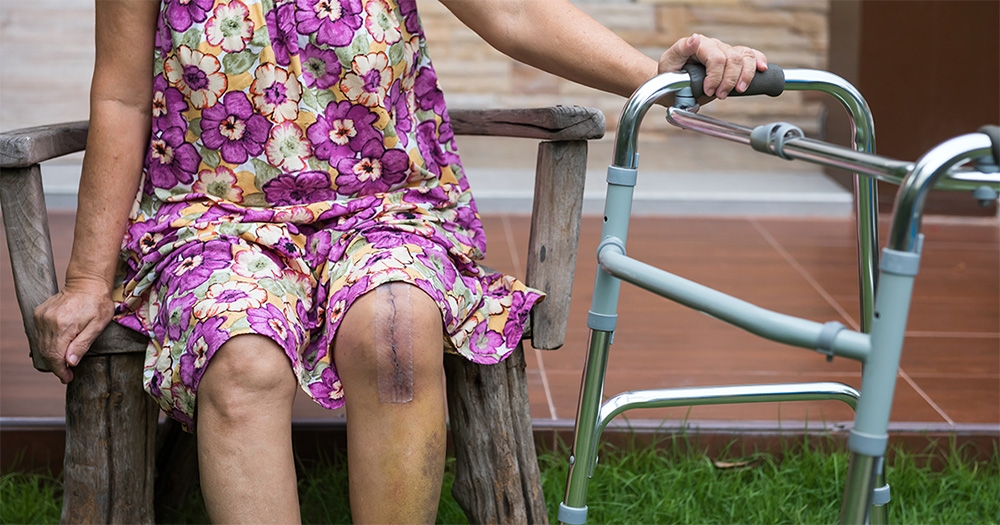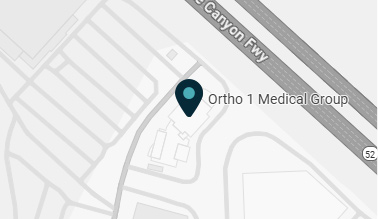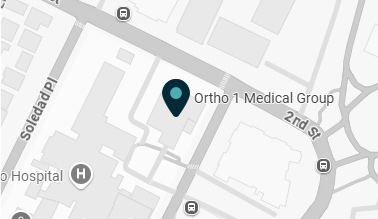If you suspect or have been told you need knee replacement surgery, you’re in good company. Hundreds of thousands of Americans receive knee replacements every year because of osteoarthritis and other knee diseases or injuries.
The good news is that knee replacements dramatically reduce your pain and increase your mobility. In fact, over 90% of knee replacement recipients report a major improvement in their quality of life.
When it’s time to replace your diseased or injured knee for a functional one, the orthopedic team at Ortho 1 Medical Group, with offices in Chula Vista and La Jolla, California, are here to guide you through the process.
One key to a successful knee replacement is knowing what to expect during recovery, so you can take the steps required for a healthy knee. Here’s the information you need.
Expect to prepare your home
Be sure to set up a sofa or chair with an ottoman or foot rest so you don’t need to stay in bed. You’ll also need to move area rugs so you don’t trip, and think about clearing away any clutter or unnecessary furniture so you have space to walk to the bathroom, kitchen, and so on.
It’s a good idea to ask family and friends for help with cooking and household chores in the weeks following your procedure. You can also hire extra help for this short period to ensure your body gets the rest it needs.
Know you’ll need physical therapy
Your knee replacement surgery is step one on the path toward a functional knee and improved mobility. To return to a pain-free, active lifestyle, it’s essential to fully commit and actively participate in physical therapy (PT) following your procedure.
While your specific protocol may vary slightly from another patient’s based on your individual needs, here’s a general look at how physical therapy works after knee replacements:
The day of surgery
Motion is essential to a strong recovery after knee replacement surgery. That’s why your care team will have you up and out of the hospital bed on your day of surgery.
Within 24 hours, a physical therapist visits and gets you comfortable standing and walking using a walker and the assistance of your caretaker. Your therapist also provides gentle stretches and exercises to strengthen your muscles and help you move properly.
1-3 weeks after surgery
In the first three weeks following your surgery, physical therapy usually continues at home or in a rehab facility. Your PT keeps you moving to prevent the buildup of scar tissue, stiffness, and immobility.
It’s normal to experience swelling and soreness around the knee joint in the weeks after your knee replacement. For the best recovery, don’t use this as an excuse to skip PT. You can ice your knee or rest with it elevated as needed when you’re not doing your exercises.
3-6 weeks after surgery
Most knee replacement patients use a stationary bike in PT beginning about three weeks after surgery to improve the muscles that support stability, like your quads, hamstrings, and hip muscles. Depending on your needs, your therapist may also have you use ankle weights to further improve your strength and mobility.
Walking without assistive devices
Many patients want to know when they’ll be able to walk without help. For patients in good health who led a moderately active lifestyle before their knee replacement, a reasonable expectation for walking without assistance is about six weeks post-op.
7-10 weeks after surgery
Even if you’re able to walk without a walker six weeks after surgery, expect to continue physical therapy for several additional weeks. During these last weeks of PT, your therapist adds more complex exercises to your regimen.
You shouldn’t engage in any high-impact exercises or activities that stress the knee joint until fully cleared by your Ortho 1 Medical Group provider. Stick to lower-impact activities like swimming, bicycling, or weight training until then.
Be realistic about recovery time
While full recovery averages about 10-12 weeks, this varies based on many factors. Overweight patients or patients who weren't active before their surgery generally have a longer recovery than healthy, physically active patients.
Also know that while your knee may be “fully recovered” after three months, it can take up to a year before you’re able to fully participate in some of the activities you did prior to your knee replacement.
Listen to your body so you can avoid a setback or additional injury, and keep your expectations realistic. By taking your recovery at a pace that works for you, you’ll improve your odds of an excellent outcome.
Learn more about knee replacement surgery and what to expect as you recover by scheduling an appointment over the phone or online at Ortho 1 Medical Group.





















